Nous terminons une riche année de #motherstories avec celle de Justine qui a accouché à 25 SA d’un grand prématuré. Martin qui ne pesait que 800 grammes à sa naissance est aujourd’hui un petit garçon de 2,5 ans en pleine forme ! Une belle leçon de vie qui nous donne force, courage et espoir, le trio gagnant pour entreprendre la nouvelle année.

Justine, peux-tu te présenter en quelques mots ?
J’ai 32 ans, j’habite à Blonay dans le canton de Vaud avec mon compagnon Jérôme et notre fils Martin de 2 ans ½. J’ai travaillé pendant 10 ans dans le secteur du tourisme avant de me tourner vers un autre domaine qui me passionne, le théâtre. Je travaille dans l’administration d’une Fondation depuis 4 ans à 60% et le reste du temps je m’occupe de Martin.
Es-tu tombée facilement enceinte ?
Oui, j’ai eu de la chance. Après 9 ans avec Jérôme, on se sentait prêts à fonder une famille. J’ai arrêté la pilule et nous avons attendu quelques mois avant d’essayer afin de me libérer des substances de la pilule. 10 mois après son arrêt, lors d’un voyage au Japon, Martin a été conçu (sourire). Je n’ai pas compris tout de suite que j’étais enceinte car comme chaque mois, j’ai eu des saignements que je pensais être mes règles mais qui se révélèrent être un début de grossesse.
A quel moment, on t’a annoncé que ta grossesse serait à risque ?
A aucun moment ! J’avais un nouveau gynécologue que je n’avais vu qu’une fois avant de tomber enceinte. A la 9e semaine, j’ai fait une première hémorragie qui m’a conduite aux urgences. J’étais sûre de faire une fausse couche mais fausse alerte. Puis, mon gynécologue m’a annoncé que mon placenta était un peu bas mais qu’il pouvait remonter jusqu’à la 32e semaine donc pas d’inquiétude à avoir. J’avais un gynéco un peu trop chill qui a sous-évalué la situation.
Tu as fait ensuite une 2e hémorragie ?
Oui, vers la21e semaine. Cette fois, mon gynécologue m’a demandé d’aller au CHUV pour faire un examen plus poussé. Pour eux, l’hémorragie était due au placenta prævia mais qu’il n’y avait rien d’alarmant. Au bout de 48h, je suis repartie chez moi.
Personne n’avait l’air de stresser ?
Exceptés mon conjoint et moi, personne ! En plus, ils m’avaient déjà annoncé que l’accouchement devrait sûrement se faire par césarienne car bébé en siège alors que moi je rêvais d’accoucher le plus naturellement possible.
A 5 mois ½ de grossesse, vous partez Jérôme et toi dans le sud de la France pour une dernière escapade à deux. Vous rentrerez finalement 2 mois et demi plus tard à 3. Que s’est-il passé ?
Avant de partir, je suis allée voir mon gynéco pour lui demander si c’était raisonnable de partir ou pas. Comme je ne saignais plus à part quelques pertes, il m’a donné son okay. Après 2 jours dans le Luberon je ne me sentais pas très en forme. Nous avons tout de même décidé de séjourner notre dernière nuit à Marseille comme prévu. Le lendemain, je me réveille en sang. Le SAMU est venu me chercher à l’hôtel pour m’amener à l’hôpital.
Qu’est-ce que tu penses à ce moment-là ? Tu réalises ce qu’il se passe ?
C’est la surprise totale, on ne sait pas où on va atterrir. En plus, gros quiproquo pour dire mon stade de grossesse étant donné qu’en Suisse et France on ne calcule pas de la même manière ! Pour eux j’étais à 26 semaines et moi je persistais à dire 25. En l’occurrence, une semaine de différence impactait la décision du département où j’allais être hospitalisée.
Que vous disaient les médecins ?
C’était un peu la panique car je perdais beaucoup de sang. Ils m’ont parlé d’une piqure de corticoïdes afin de permettre d’accélérer la maturation des poumons du bébé mais je ne voulais pas. Pour moi, il était impensable que j’accouche maintenant. On a décidé d’appeler le CHUV afin d’avoir un deuxième avis mais ils nous ont dit qu’il fallait le faire. On a passé la journée et la nuit du vendredi en observation. Jérôme dormait sur un fauteuil pour ne pas m’abandonner.
Le lendemain, on a appelé la Rega pour voir si un rapatriement était possible mais j’ai ensuite commencé à saigner comme jamais. Tout est ensuite allé très vite ! Ils n’avaient plus le choix que de me préparer comme si j’allais avoir une césarienne (cathéter, sonde urinaire…)
Est-ce qu’à ce moment le bébé était viable ?
Moi j’étais persuadée que non, c’était affreux. Étonnamment, l’équipe était plutôt positive. Elle nous a rassurée en nous assurant que ça pouvait très bien se passer et qu’ils avaient eu de nombreuses success stories. Une pédiatre de la néonat est venue nous expliquer comment l’accouchement allait se passer s’il devait avoir lieu maintenant et quels seraient les soins post-partum (soins intensifs, intubation, incubateur…).
Quand tu as compris que tu allais accoucher, qu’as-tu ressenti ?
Beaucoup de peur mais au moment où on m’a dit cette fois, il faut aller au bloc, je me suis sentie presque soulagée malgré la peur. J’ai eu la chance dans mon malheur d’être consciente quand Martin est arrivé. Ils ont été adorables. L’ambiance était détendue. Jérôme n’a pas pu rester mais il était dans la salle de soins attenante.
Tout a été très vite. Martin est sorti et première victoire, il a crié (sourire). On ne connaissait pas le sexe, ça a été la surprise. Je n’ai pas pu faire de peau à peau car, à ce moment, chaque seconde compte. Ils l’ont emmené dans la pièce où était Jérôme et je me suis retrouvée toute seule.
Je n’étais vraiment pas prête psychologiquement. Je me suis sentie si vide.
J’ai encore perdu énormément de sang. Ils ont découvert que j’avais un placenta ACCRETA c’est-à-dire qu’une petite partie adhérait à mon utérus. Les gynécologues détestent ça car c’est très difficile à gérer lorsque c’est découvert au moment de l’accouchement. J’ai eu la chance que ce ne soit qu’un petit bout. Ils l’ont donc laissé dans un premier temps.
Quelle était l’atmosphère au bloc une fois que Martin est sorti ?
C’était vraiment intense ! Il y avait une équipe qui s’occupait de moi et une équipe qui s’occupait de Martin dans la pièce d’à côté. Ils communiquaient par téléphone. J’ai pu entendre : « votre bébé fait 900 grammes ». 900 grammes !!! Il s’avèrera qu’au final il ne pesait même que 800 gr…
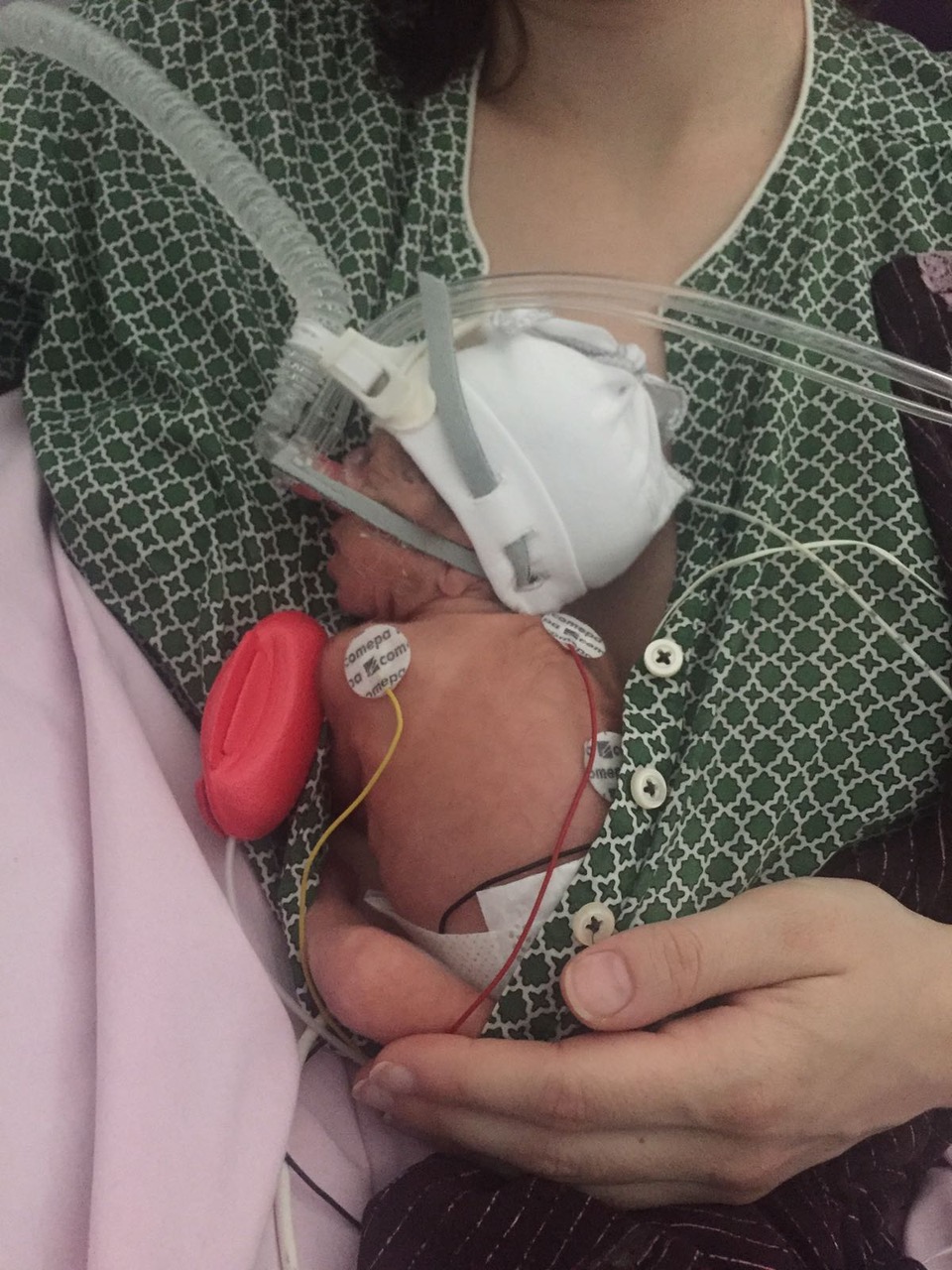



Tu as dû subir immédiatement une autre intervention pour enlever le bout de placenta ?
Oui et il fallait aller vite et ils ne pouvaient pas le faire sur-place car seul un chirurgien radiologue pouvait intervenir. Dans mon malheur, j’ai eu la chance, dans l’attente de mon transfert, de pouvoir aller voir mon fils. J’ai pu le prendre sur moi ce qui normalement n’arrive jamais et nous a permis de créer un premier lien.
Je suis ensuite partie à l’hôpital annexe pour cette opération très spécifique et délicate. En gros, ils m’ont dit que c’était quitte ou double et qu’après 3 tentatives infructueuses, il faudrait enlever mon utérus.
A ce moment, tout est tellement flou. Je ne sais pas si mon bébé va vivre, je ne sais pas si je vais garder mon utérus, je ne sais rien, je suis désemparée.
Une fois Martin né, combien de temps vous alliez devoir rester à l’hôpital ?
Les médecins nous ont dit d’abord 1 mois mais au final on est resté plus de 2 mois.
Vos proches et amis étaient au courant ?
Seule notre famille proche était au courant. J’ai accouché à 4h40 du matin, à 17h ils étaient là. On n’était jamais plus de deux auprès du bébé. Les parents et grands-parents + fratrie exclusivement. Ma sœur n’aurait pas pu le voir mais ils ont fait une exception. Ma maman est restée 10 jours et est revenue à chaque fois que Jérôme devait rentrer en Suisse ce qui est arrivé 2 fois. Heureusement, il est indépendant et a pu s’organiser pour travailler depuis Marseille. Je suis restée 12 jours à l’hôpital et après dans une Maison Ronald McDonald juste à côté.
Comment ce sont passés vos débuts avec Martin ? Quels étaient ses soins ?
Il était dans un incubateur, intubé, il avait un cathéter central pour recevoir la nourriture chimique, une sonde nasogastrique, des électrodes, des patchs… Bref, il était branché de partout avec des bips bips au début très stressants. A peine une machine sonnait qu’on se demandait si quelque chose de grave était en train d’arriver alors que cela pouvait être insignifiant.
Au bout de 36h, j’ai pu faire un peau-à-peau, le premier d’une longue série. Tous les jours, quand son état le permettait, nous le portions en kangourou.
A quoi ressemble un bébé prématuré ?
A un petit bébé mammifère. Une miniature, tout bien formé mais si fragile, tout poilu avec une peau fine. Il avait beau faire 30 cm, recroquevillé il paraissait si petit. Au début, on ne va pas mentir c’est très impressionnant et difficile. Il faut apprivoiser les machines qui bipent de partout. Parfois, les infirmières devaient stimuler Martin car les bébés prématurés oublient de respirer. Ils sont souvent en désaturation et en apnée.
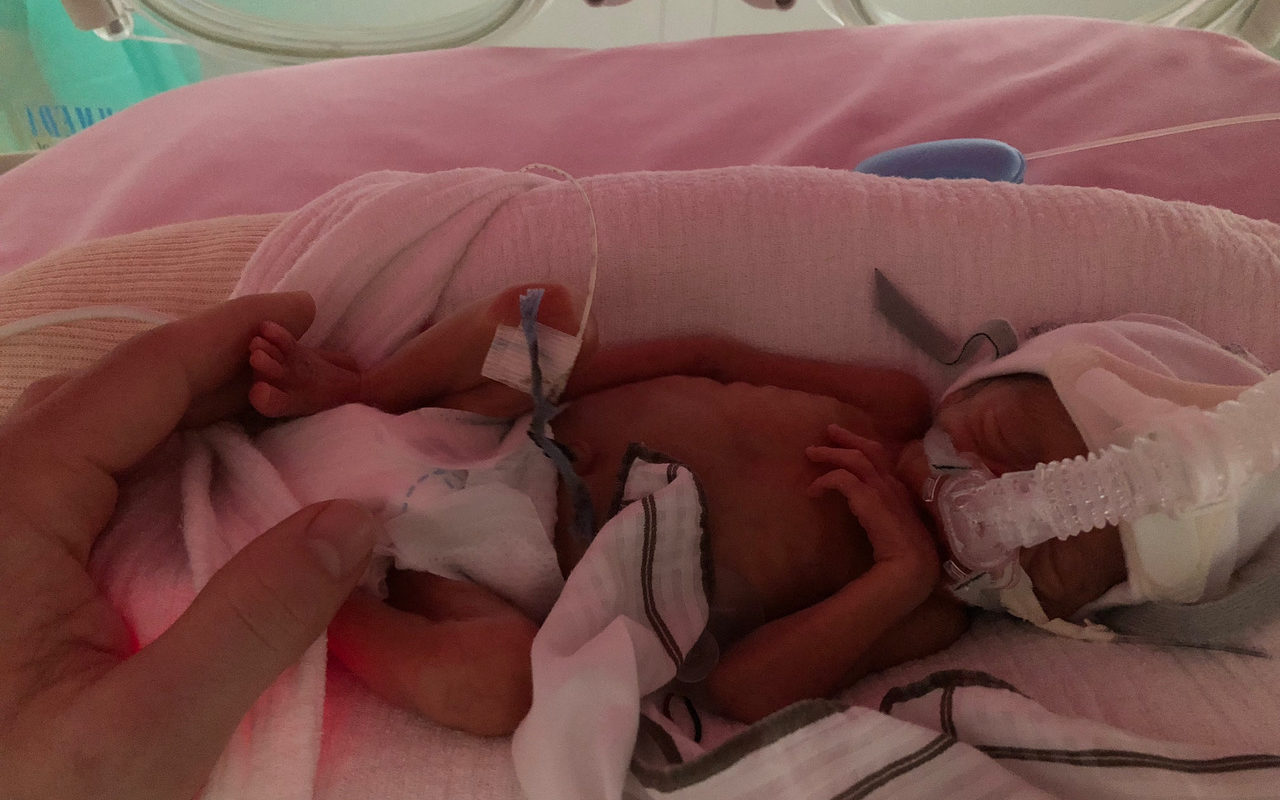

Est-ce que l’équipe médicale était à votre écoute et vous expliquait au jour le jour les évolutions ?
L’équipe médicale était vraiment super. On a rapidement créé des liens avec eux. Il faut se rendre compte que la vie de notre bébé était entre leurs mains. On n’a côtoyé qu’eux pendant 2 mois. Avec Jérôme, on a eu besoin de comprendre par nous-mêmes la situation, les termes des médecins, les manipulations à faire ou ne pas faire. J’avais besoin d’être actrice et non pas spectatrice. Plus les semaines passaient, plus on se sentait en confiance pour manipuler Martin. Comment le débrancher, le prendre dans nos bras, le rebrancher. En France, ils laissent plus facilement et rapidement de la liberté aux parents ce qui est important pour créer des liens et se sentir parent le plus vite possible.
Comment s’est passé le retour tant attendu en Suisse ?
On devait rentrer fin mai soit 2 mois après la naissance de Martin mais la veille du départ grosse frayeur ! Il y a eu une complication au niveau de son intestin. On a dû retourner au service de réanimation où ils l’ont ré-intubé. Il a eu une entérocolite soit une partie de son intestin qui commençait à nécroser. On a failli le perdre. On a eu très très peur. Cette-fois, les médecins n’étaient pas du tout rassurants à tel point que la pédiatre avait les larmes aux yeux. Mais Martin, notre guerrier s’en est sorti ! Il a survécu.
Après quelques jours, on a eu le OK pour rentrer. On a rappelé la Rega qui depuis notre premier entretien téléphonique continuait à prendre de nos nouvelles régulièrement. Ils ont été incroyables ! Je peux vous dire que c’est avec plaisir et désormais une grande reconnaissance que nous payons nos cotisations. En 24h, tout était organisé. Le trajet en ambulance jusqu’à l’aéroport puis l’avion avec tout l’équipement médical nécessaire. Il y avait un médecin et une infirmière spécialisés en néonatologie et un infirmier de la Rega qui sont arrivés avec tout le nécessaire ! L’équipe à Marseille a halluciné car eux n’ont pas de tels moyens… Ils ont mis Martin dans l’incubateur, branché de partout. Je suis restée avec lui tout le long. Jérôme est rentré en Suisse avec ma mère dans notre voiture. A l’atterrissage, une ambulance nous attendait sur le tarmac pour aller au CHUV.
Émotionnellement, ça a dû te faire bizarre de partir après autant de temps passé à l’hôpital ?
Oh oui ! Comme je disais, l’équipe médicale a fait un travail exceptionnel. Je leur dois la vie de Martin. On a passé tellement d’heures là-bas. On est passé par tellement d’émotions que de partir, cette-fois pour de bon, ça m’a fait un coup. Soulagée bien sûr mais un peu nostalgique.
Combien de temps Martin a dû rester au CHUV ?
Nous savions qu’il devrait rester au CHUV encore au moins 1 mois, jusqu’à la date initiale du terme, soit le 16 juillet. Il n’était pas encore indépendant au niveau respiratoire. Jérôme et moi sommes rentrés chez nous (enfin) et avons fait les allers-retours tous les jours.
Du coup, la chambre de Martin n’était pas faite ?
Bizarrement (ou un signe), on s’y était pris vraiment à l’avance. On avait déjà tout acheté pour sa chambre. On avait même la poussette (sourire). On a juste dû finaliser la déco pour qu’elle soit la plus cosy possible.
As-tu pu allaiter Martin ?
A peine né, j’ai sorti mon colostrum qu’ils lui ont donné à la seringue. Puis, j’ai pu tirer mon lait qu’on lui donnait (par la sonde) pendant les 2 mois à Marseille. Tirer son lait de nombreuses fois tous les jours est astreignant et prend beaucoup de temps. Mais en sachant à quel le lait maternel est de l’or pour eux, je le faisais volontiers, je me disais que c’était la moindre des choses que je pouvais faire pour lui. On a commencé l’allaitement au sein en rentrant en Suisse et ça s’est plutôt bien passé. Je l’ai allaité jusqu’à ses 1 an.
Quand et comment s’est passé le GRAND retour à la maison tous les 3 ?
Le 23 juillet (sourire). Cela nous a fait bizarre de nous retrouver les trois à la maison seuls. Plus d’équipe médicale, plus de machines, juste nous, deux parents qui comme tous les parents du monde se sentent un peu stressés mais on a très rapidement trouvé nos marques.
On rentre avec un nouveau-né mais il a déjà 3 mois de vie, on le connait.
Comment se passe le congé maternité avec un grand préma ?
C’est un gros problème ! Le congé maternité aurait commencé le jour de l’accouchement ce qui fait que j’aurais dû recommencer le travail avant même que Martin ne rentre à la maison, ce qui était bien étendu impensable ! Nous avons alors pu repousser le congé maternité afin que celui-ci commence le jour du retour à la maison. Mais pendant les mois d’hospitalisation, aucune assurance ne prend en charge le salaire de la maman. Il y a une sorte de zone grise (ce qui ne sera plus le cas dès 2021 grâce à l’entrée en vigueur de la loi fédérale pour soutenir les proches aidants). Nous avons eu énormément de chance car mon employeur a continué à me payer, je suis très reconnaissante pour sa générosité !
Comment va Martin aujourd’hui à 2 ans ½ ?
Super bien (sourire). Il n’a aucune séquelle, il n’est jamais malade. Je ne vais chez le pédiatre que pour ses contrôles annuels. Pour l’instant il a très bien évolué et a rattrapé sa courbe de croissance.


Quelle est votre relation ?
Nous sommes très proches mais j’essaie de ne pas le surprotéger. Il est important pour moi qu’il puisse s’épanouir comme tous les autres enfants. J’ai de la peine à le faire garder par quelqu’un d’autre je dois l’avouer. On nous avait déconseillé dans la mesure du possible de le mettre à la crèche les deux premières années pour protéger son système immunitaire. On s’est donc arrangés entre sa grand-maman, son papa et moi.
Et toi comment vas-tu ? Et ton couple ?
Physiquement ça a été long. 3 mois après ma première opération j’ai dû la refaire mais cette fois, ça a marché ! Le bout de placenta qui était resté en moi est enfin parti.
Émotionnellement, ce n’était pas évident. On a eu tellement peur de perdre Martin que toute notre attention était pour lui et on s’est complètement oubliés mais, petit à petit, on reprend du temps pour nous. Jérôme a une force de caractère incroyable. Il a été mon roc durant toutes ces épreuves. Il me faisait rire et voyait toujours le côté positif.
Aujourd’hui, je peux dire que cette épreuve nous a beaucoup appris. Elle nous a renforcé et m’a permis de me révéler.
Quels conseils donnerais-tu a des parents qui sont aujourd’hui en train de vivre cette situation ?
Chaque histoire est tellement différente. Mon mantra était : confiance & patience. On s’était « préparés » à peut-être perdre notre fils. Il faut mettre toute sa confiance en son bébé. Les vrais guerriers c’est eux et on peut les accompagner du mieux qu’on peut en leur donnant toute l’énergie et la force que nous avons. L’environnement médical fait peur au début. Il faut réussir à l’apprivoiser et à en faire un allié. Malgré la situation, il est important de ne pas se faire « voler » sa place de parents et de l’affirmer.
Si tu devais définir la maternité en un mot ?
Surprise car on n’est jamais préparé à ce qui nous attend. Et amour.
Justine, que peut-on te souhaiter de meilleur aujourd’hui pour demain ?
Que toute notre famille reste en bonne santé et si 2e grossesse qu’elle se passe bien et qu’elle aille à terme.
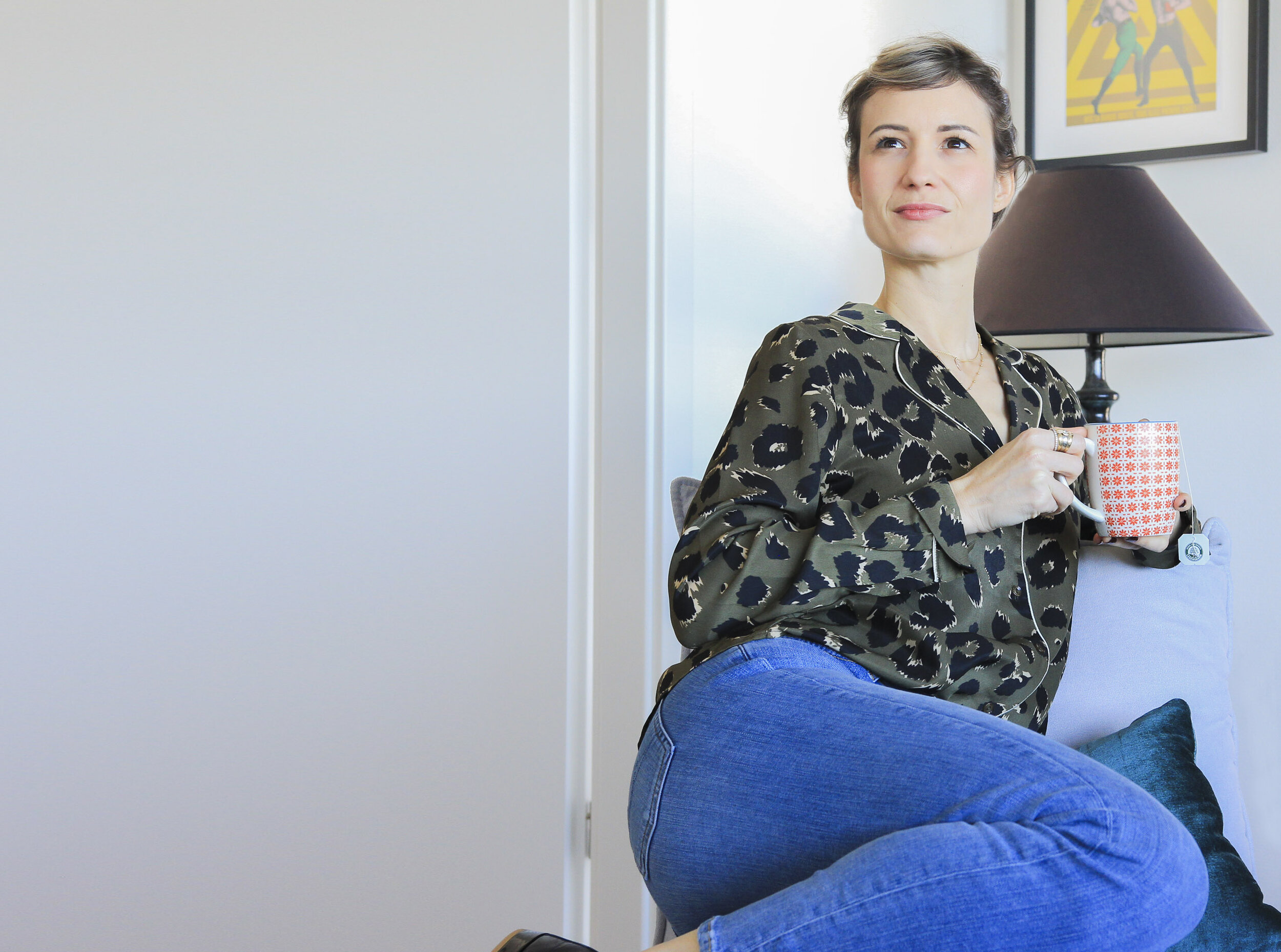
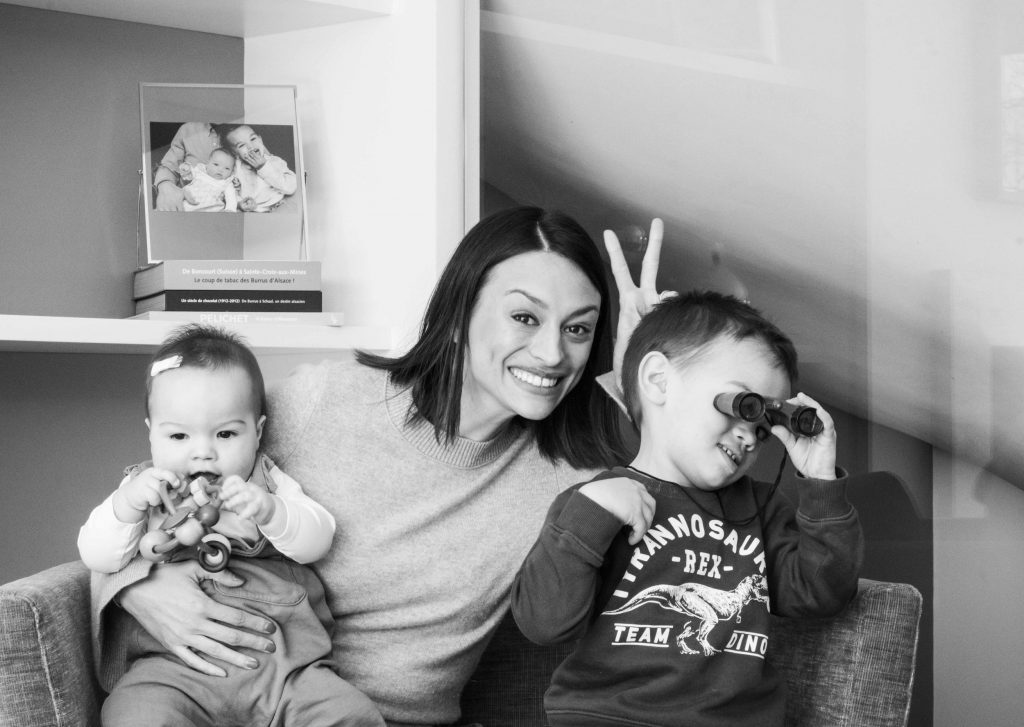
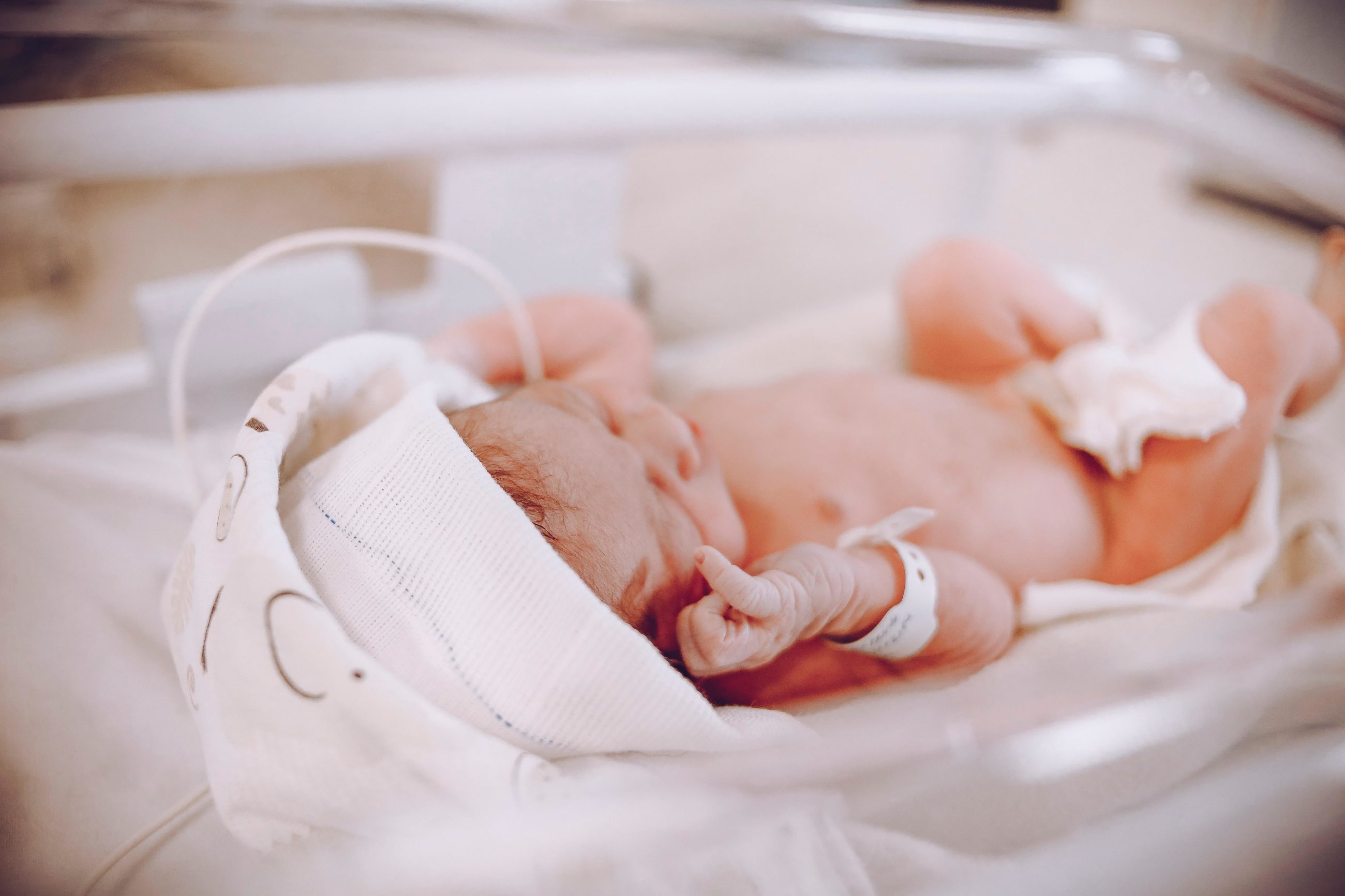
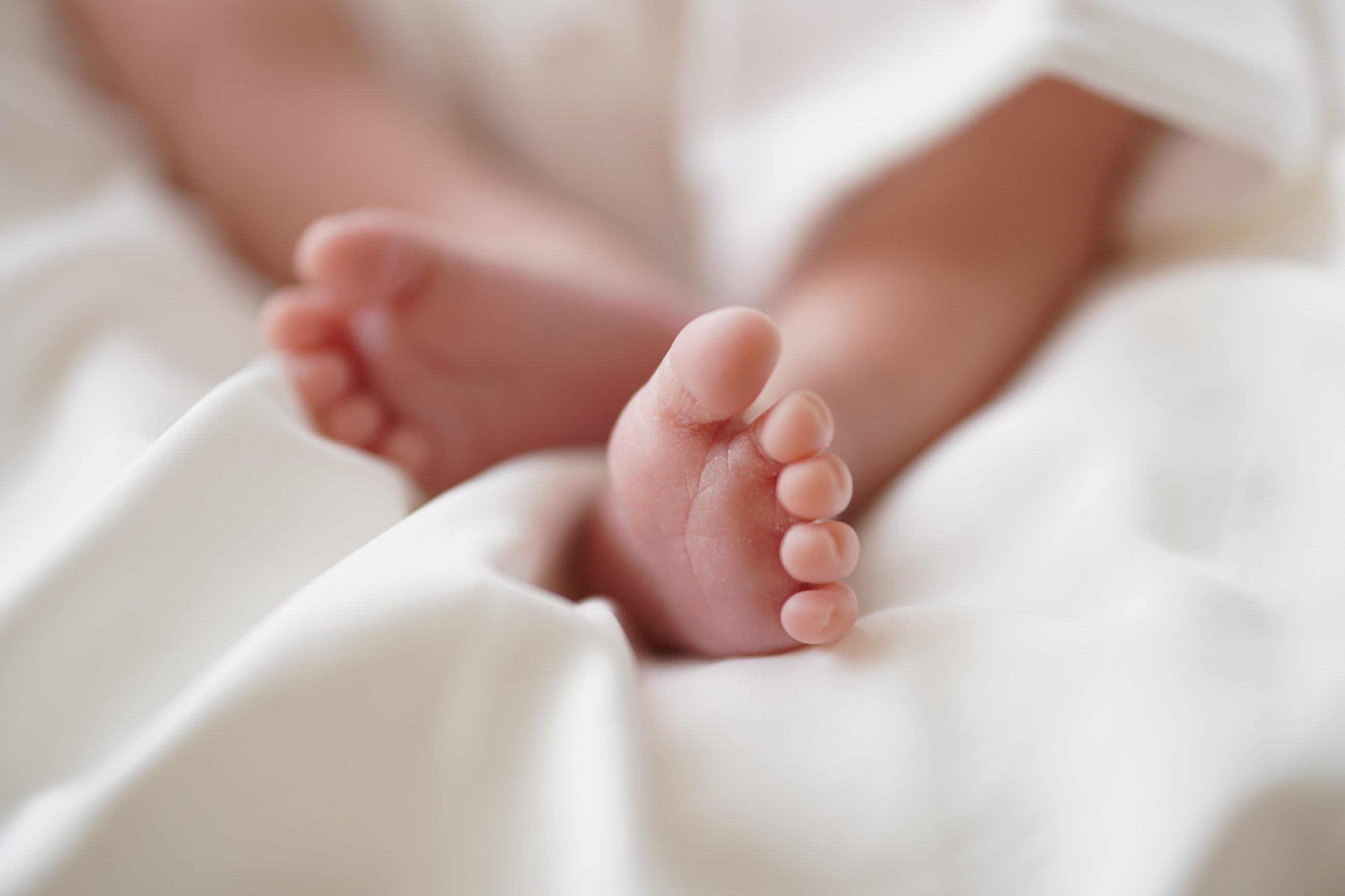
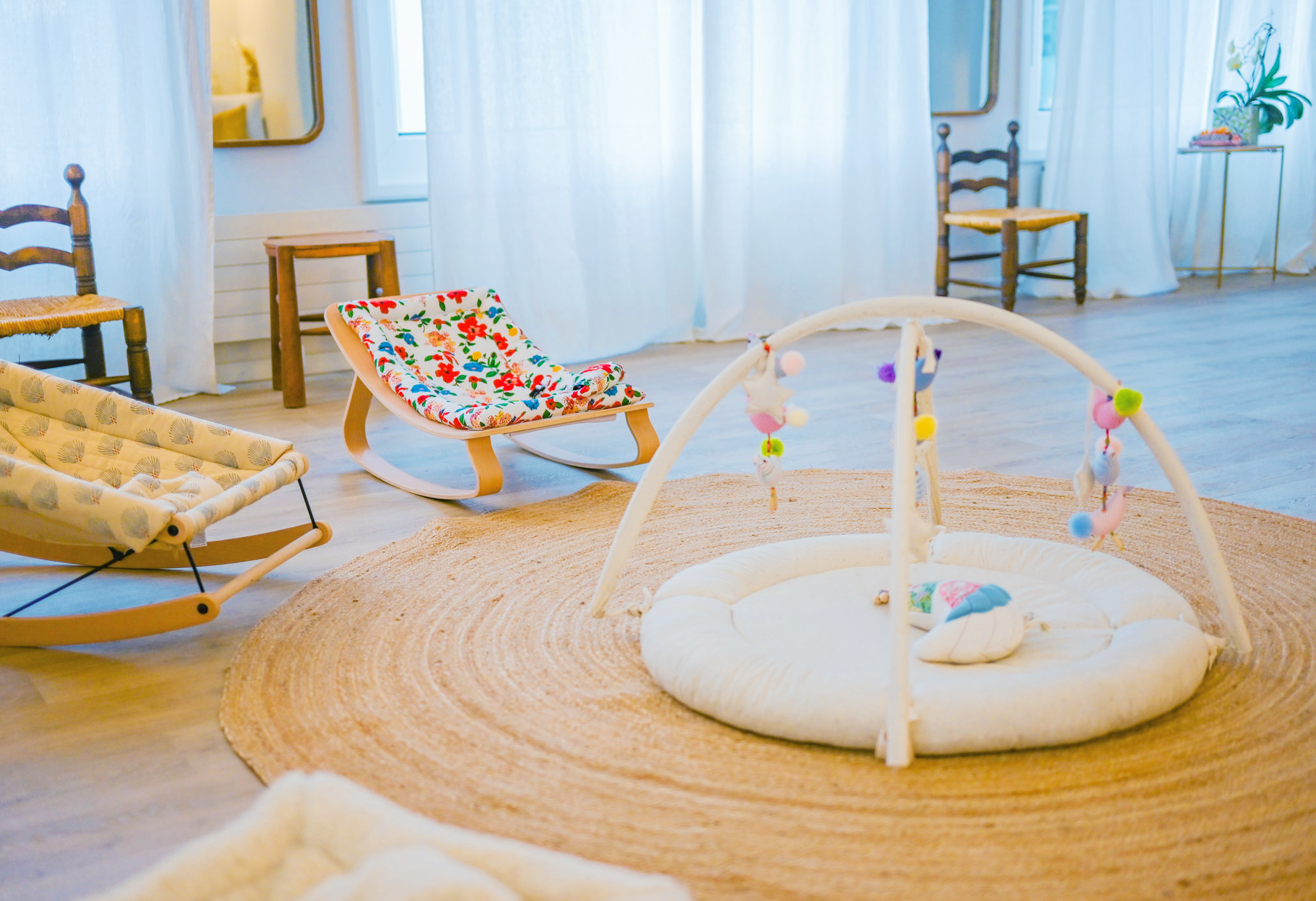
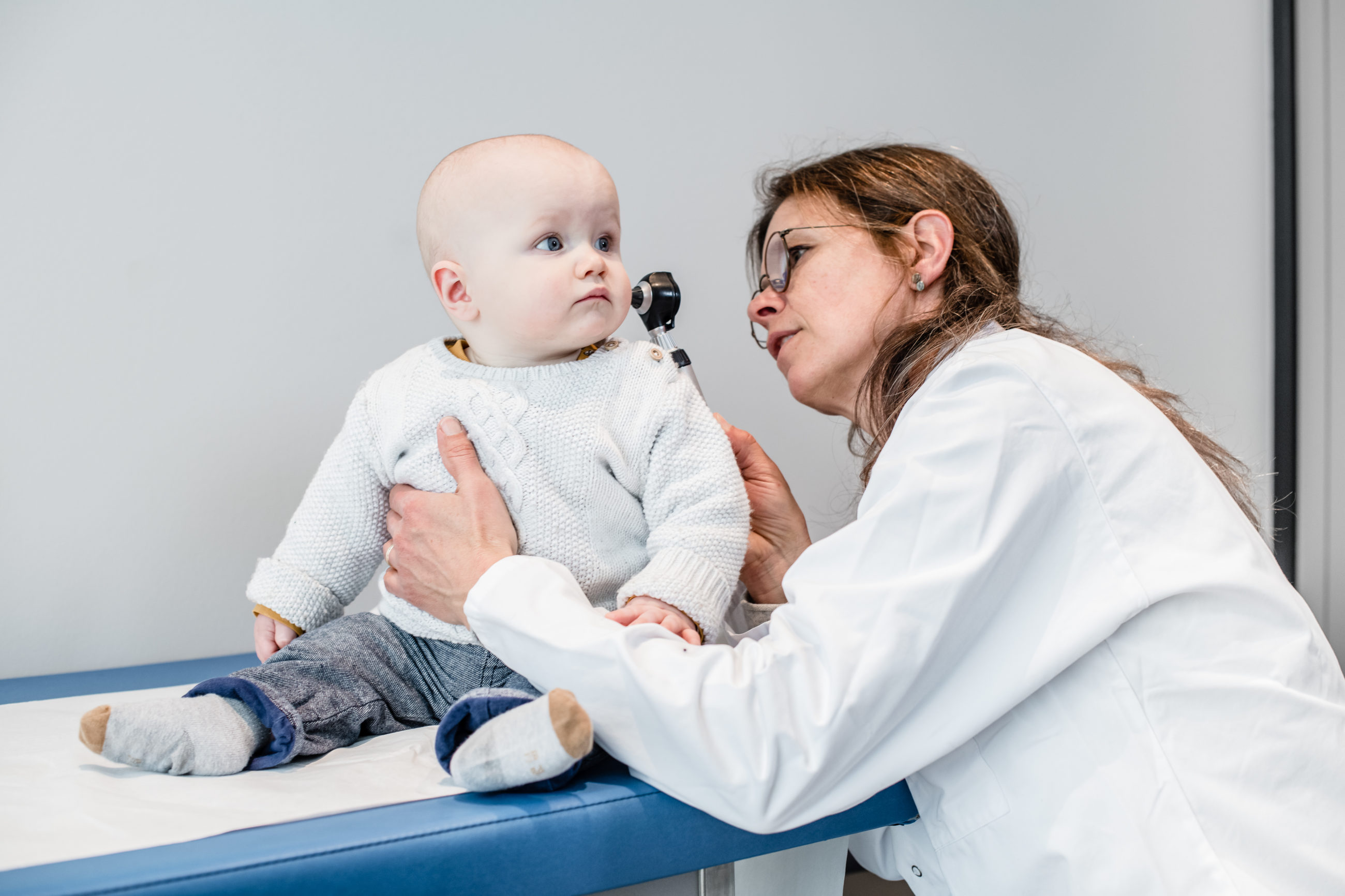
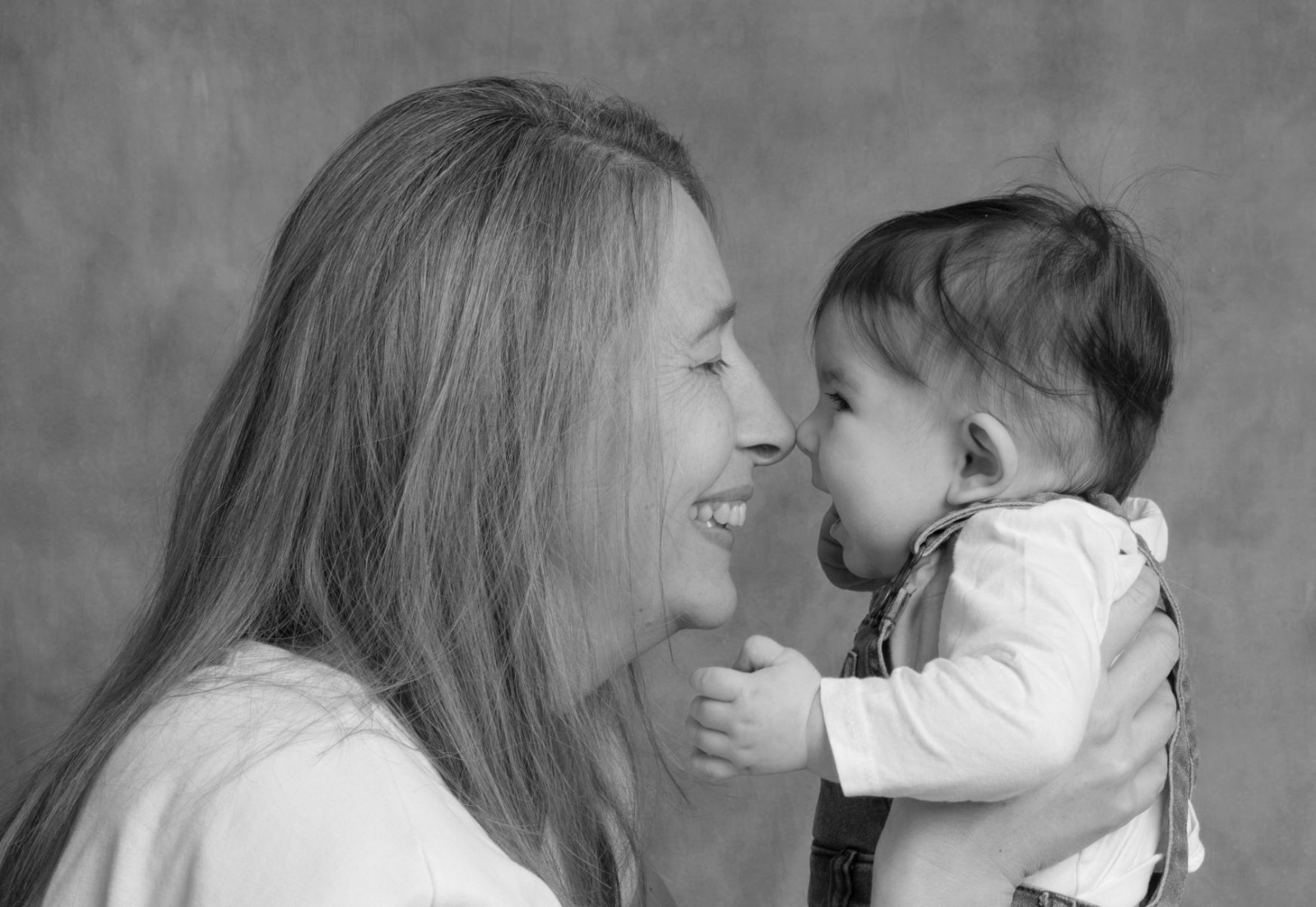
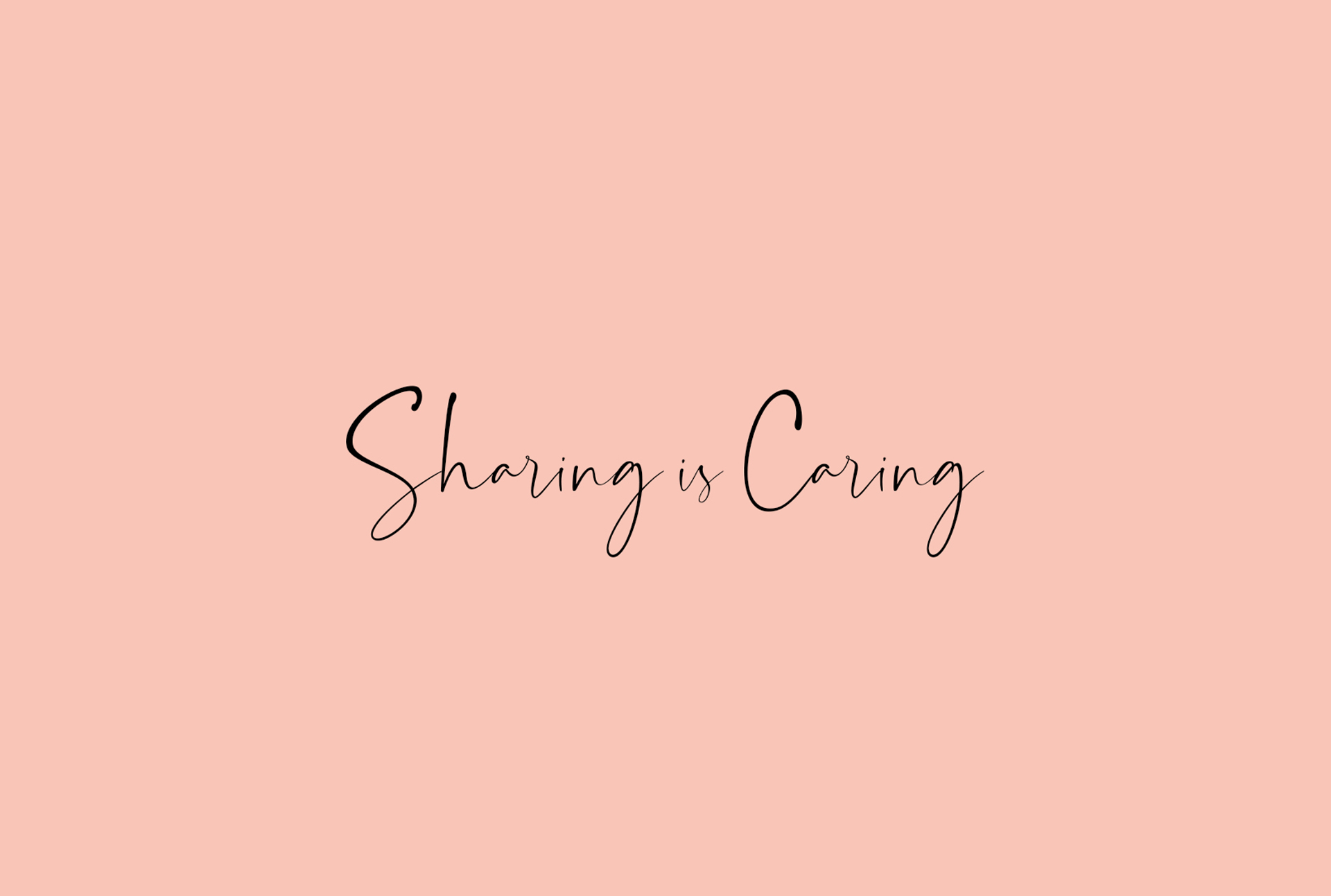
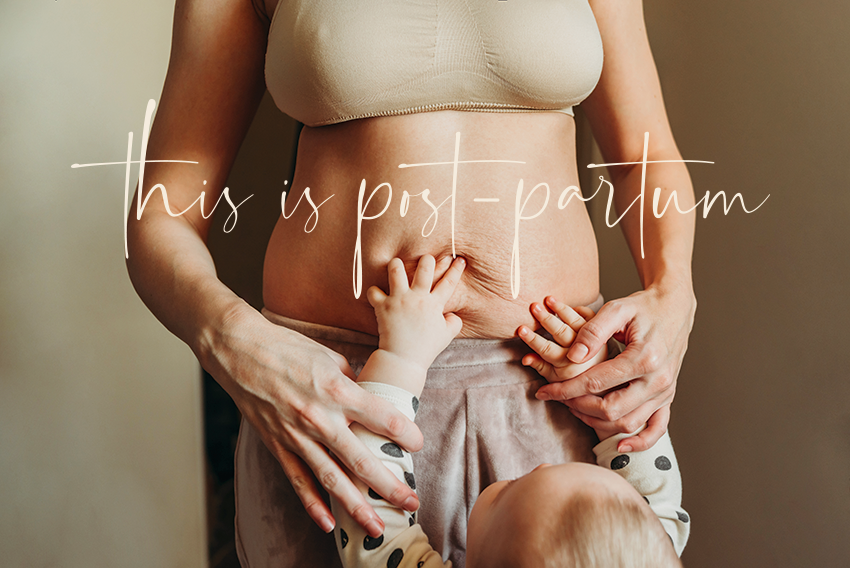

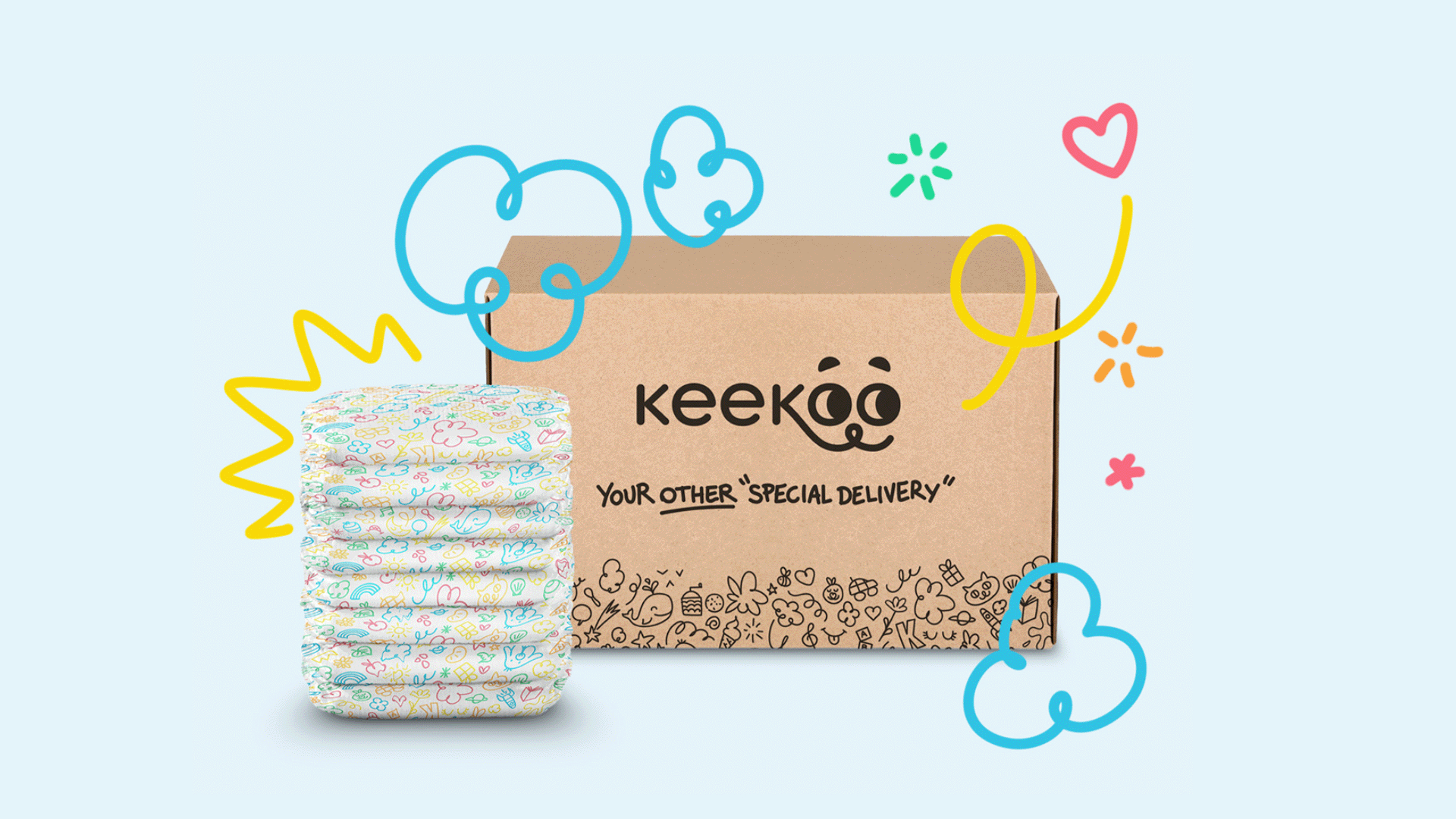
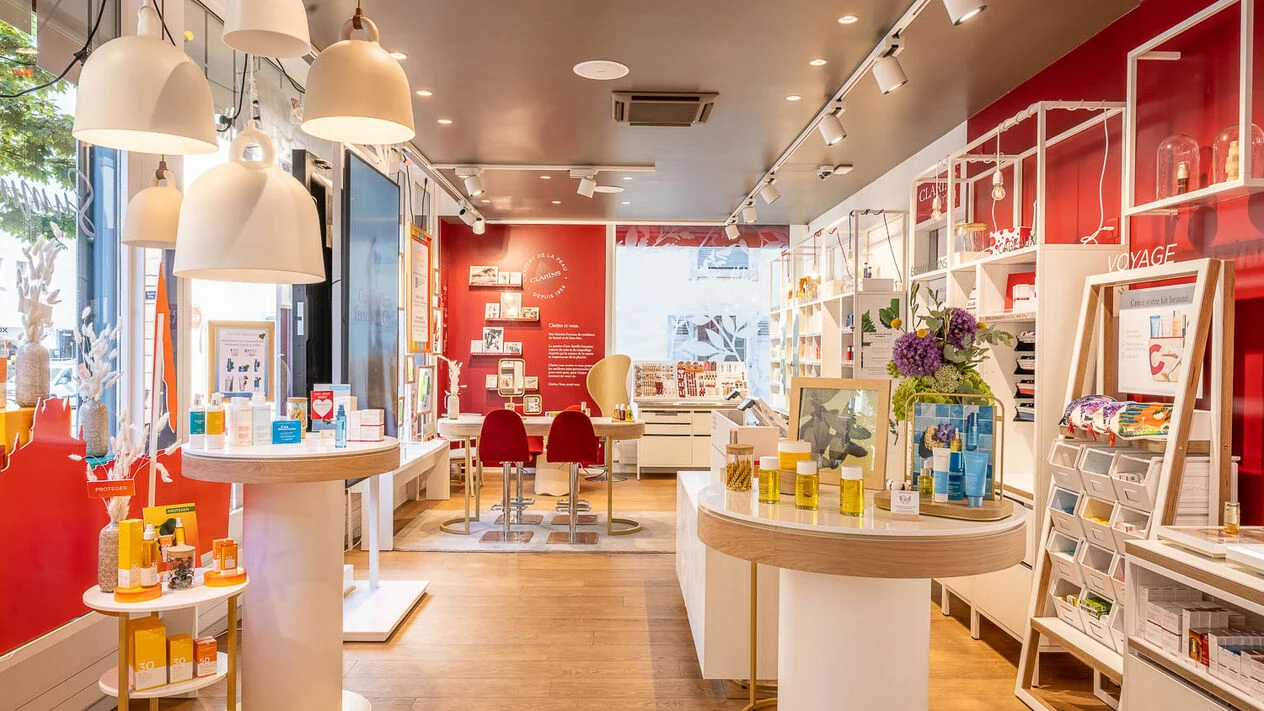
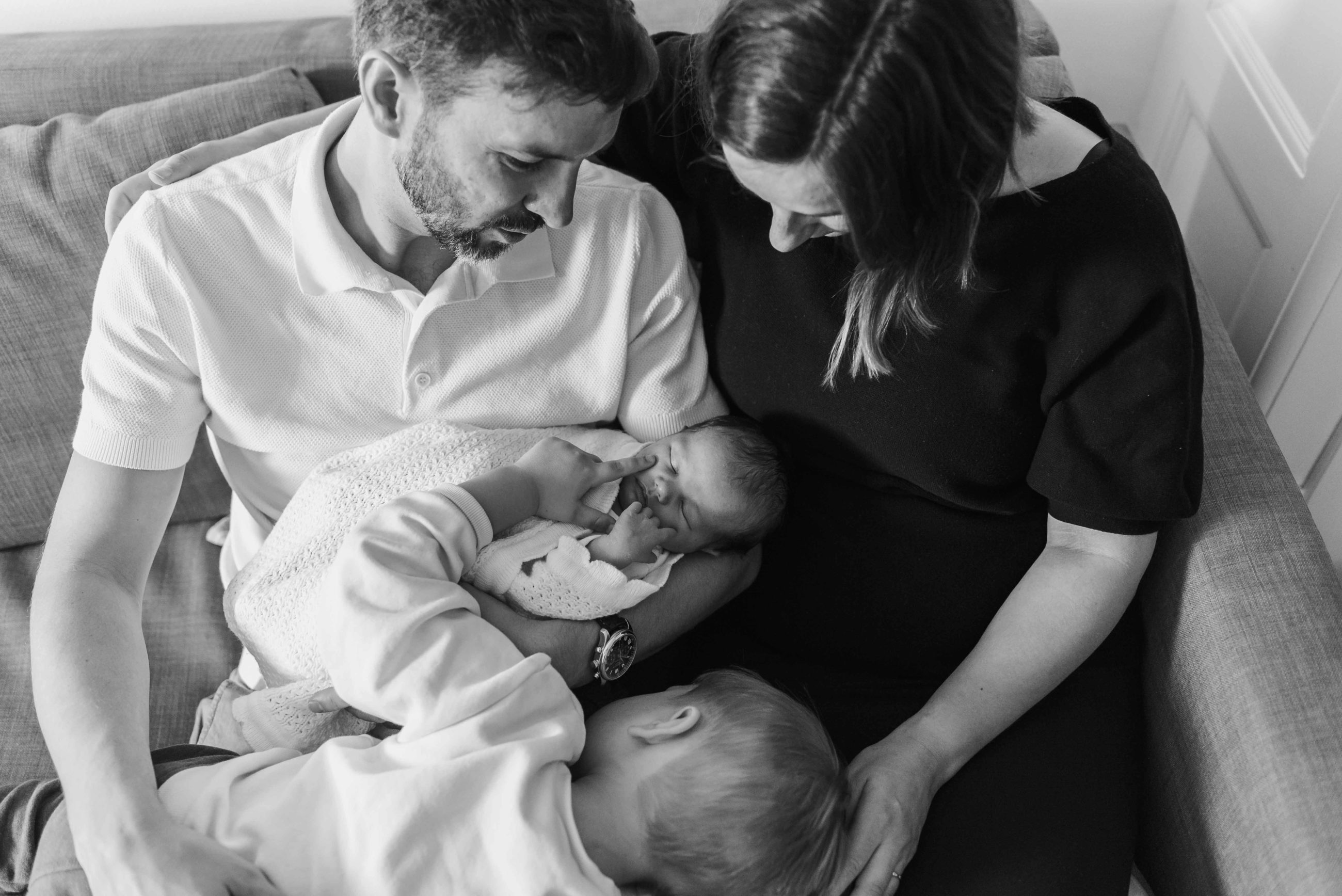
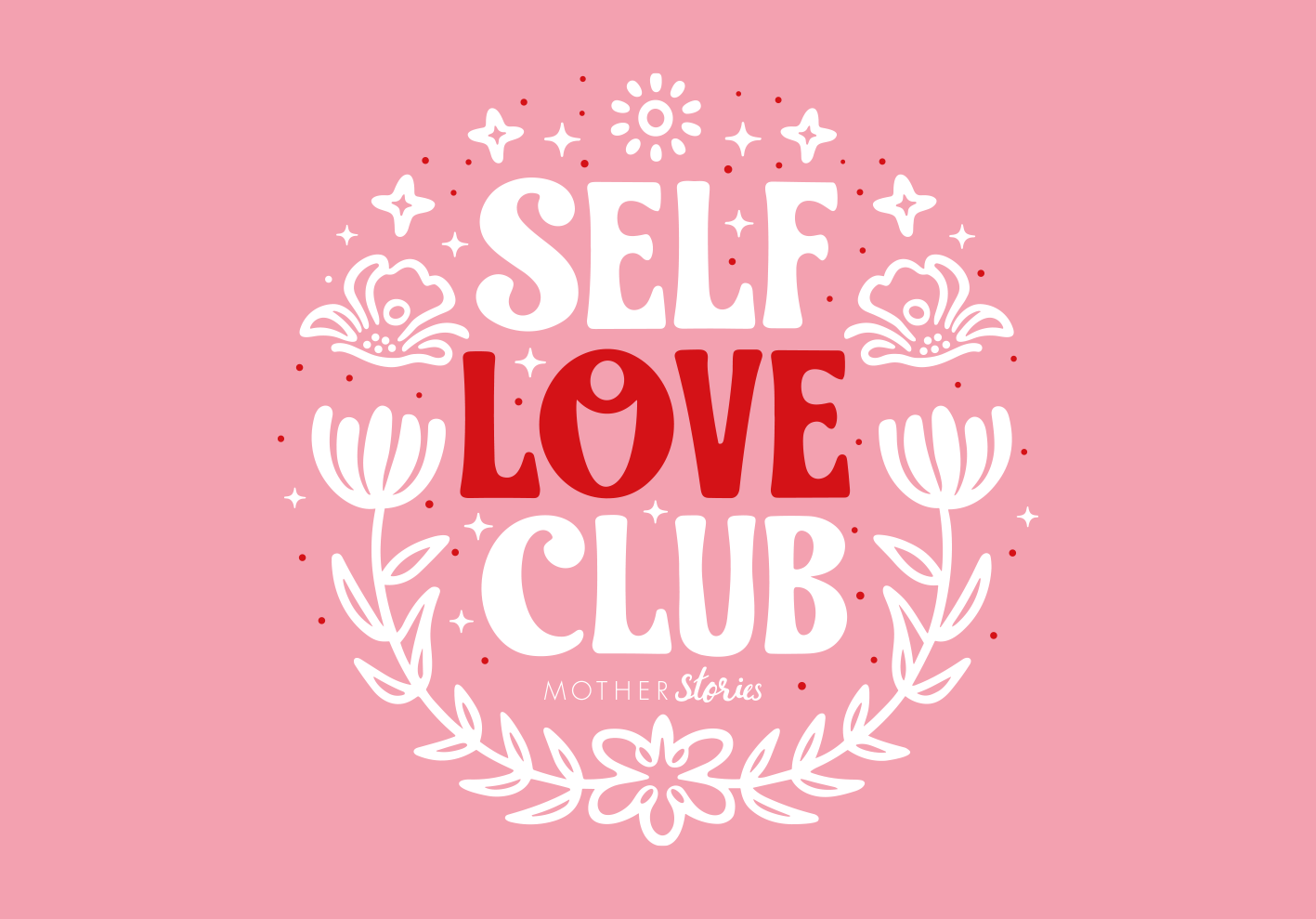
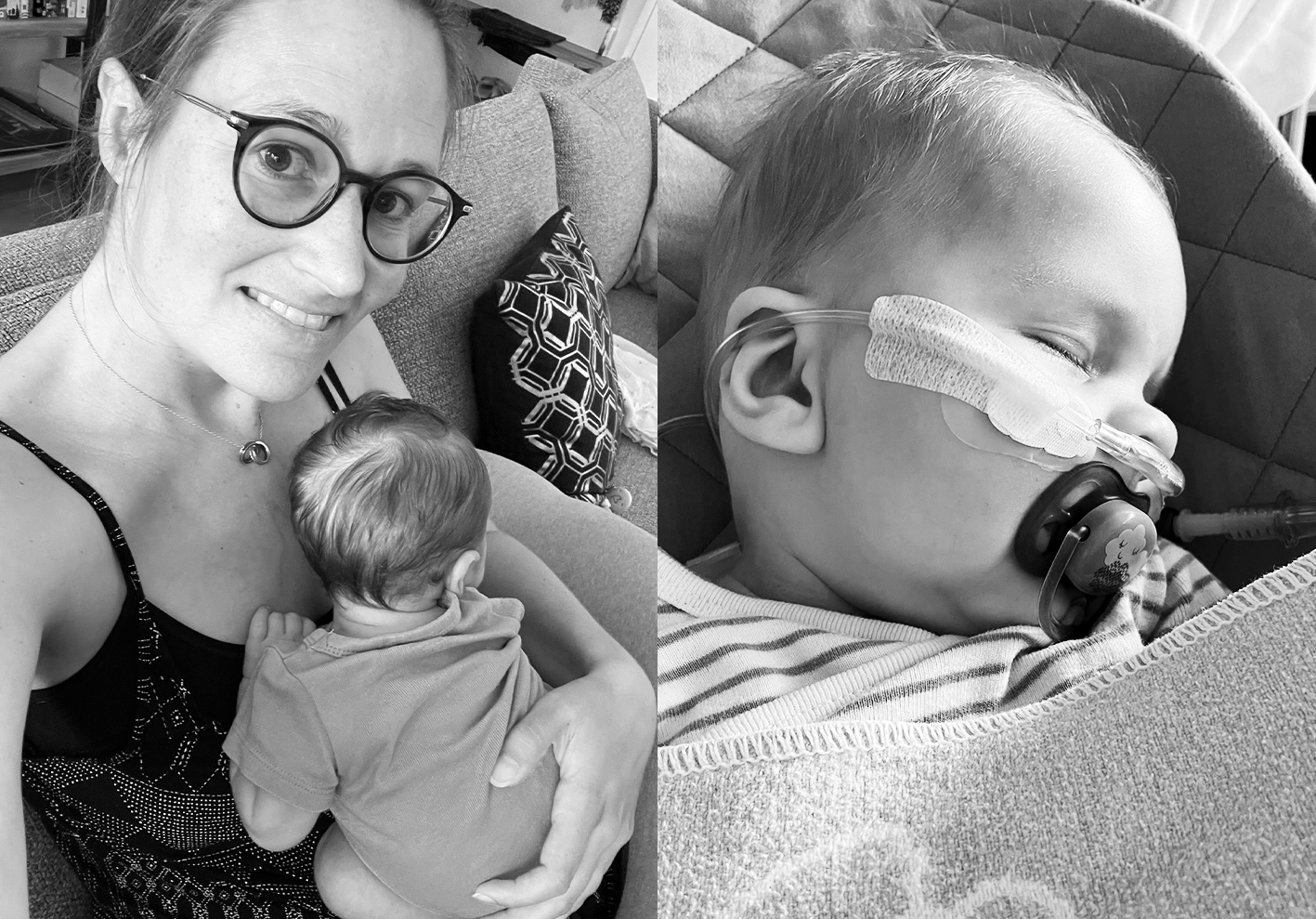


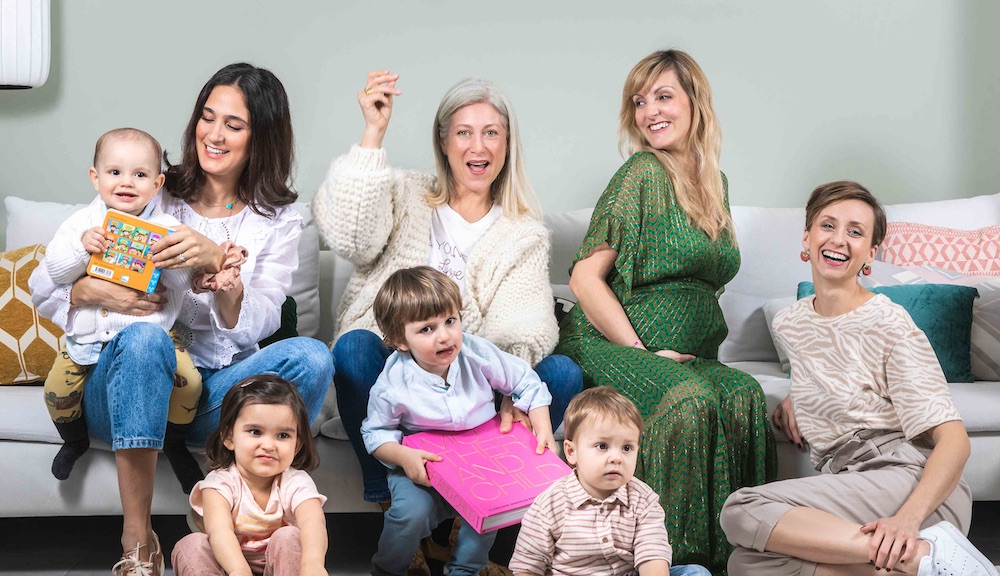


Partager cet article